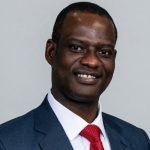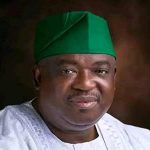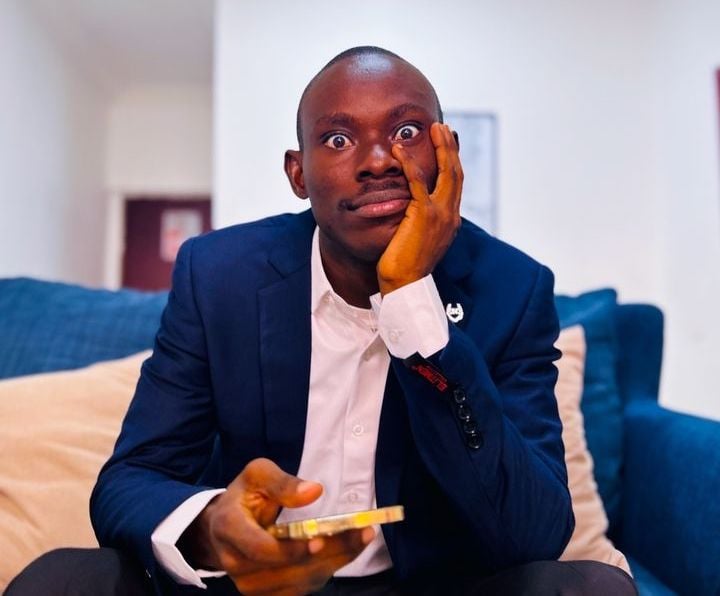The controversy surrounding the authenticity of the iPhone 17 Pro Max in Nigeria has taken a new turn, as popular TikTok influencer GehGeh voiced regret over spending millions of naira on what he now fears may be a fake or rebranded device.
In an emotional video posted on Saturday, GehGeh expressed deep frustration over the confusion engulfing the iPhone 17 market in Nigeria, admitting he felt misled by the uncertainty around which devices are genuine.
“At this point in time, I don’t want to pretend again, I regret why I carry my millions go buy this phone. Every day I wake up, I cry, I weep deep inside me,” he said in the viral clip.
According to the content creator, many buyers like himself now feel forced to defend their purchases because even tech experts cannot clearly distinguish the authentic iPhone 17 Pro Max from refurbished models disguised to look like the latest Apple flagship.
“Now, you know the pain of buying something, you go come dey explain bro na the original be this one, because nobody knows the difference between the original one and the fake one,” he lamented.
GehGeh explained that the phone’s perceived status influenced his decision to buy it, stating, “The reason why I buy this phone is because as you see am for my hand, you go know say bro — na millions dey him hand.”
Despite the luxury appeal, the influencer admitted he preferred the feel of his previous device. Holding up his older iPhone 16, he said, “But at this point, my brother, I regret buying the 17 Pro Max. The phone, it’s not even comfortable for hand. See how it’s flexible for my hand, even with pouch. But see the television that I carry for hand.”
The authenticity debate began trending on October 13, 2025, when businessman and tech investor Linus Williams Ifejika, popularly known as Blord, shared a video unboxing what he claimed was a “modified iPhone 17 Pro” sold for ₦400,000 to ₦450,000. The device was later identified as a refurbished iPhone XR, refitted with an iPhone 17-style casing—fueling outrage online.
GehGeh added that, despite spending a large sum, he has no proof his version is original: “Because even this one, it’s not even enough evidence say okay, now the original one be this one. I will carry millions of Naira go buy something. Now, I go dey explain to people, I go carry my money go buy material things.”
Reactions on social media platforms like X and Instagram have been intense. On X, user #edkel250 wrote, “You go buy iPhone 17 Pro Max for Nigeria and you go begin explain say nor be fake. Dem use that 17 Pro Max tire person.”
Another user, #TheManAfricano, added, “Nigeria has to be the only country in the world selling these repackaged fake iPhone 17s. It really says a lot about us.”
On Instagram, the ridicule continued. #bestdeal_appliances joked, “This iPhone 17xr come be like Labubu, everyday price dey reduce,” while #chef_ivyjones1 teased, “Before next week, the phone go be 2,500.” One user, #diamondjearny, stated, “If I don’t walk into Apple Store, I don’t want.”
Others offered more critical takes on the situation, framing it as a lesson in consumer responsibility. “People reject real prices because they want shortcuts,” one user noted. “Then they complain online when the cheap version doesn’t match up.”
Apple officially unveiled the iPhone 17 series—including the iPhone 17, iPhone 17 Air, iPhone 17 Pro, and iPhone 17 Pro Max—on September 9, 2025. The official retail prices are as follows: iPhone 17 — $799 (approx. ₦1,210,485), iPhone 17 Air — $999, iPhone 17 Pro — $1,099 (₦1,664,385), and iPhone 17 Pro Max — $1,199 (₦1,815,285).
Despite the growing backlash, Apple Inc. has yet to issue a statement addressing the reported circulation of fake or modified iPhone 17 units in Nigeria.
For now, many Nigerian buyers like GehGeh remain in limbo—caught between the allure of high-end tech and the harsh reality of an unregulated local market.











